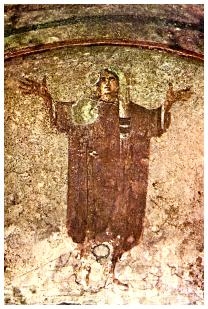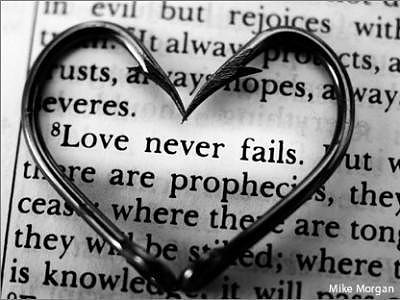Come Holy Spirit!
 Happy Pentecost! How about a short reflection from Raniero Cantalamessa, one of my all-time favourite people, who also happens to be the Preacher to the Papal Household?
Happy Pentecost! How about a short reflection from Raniero Cantalamessa, one of my all-time favourite people, who also happens to be the Preacher to the Papal Household?
"We are travellers…not yet in our native land" – St. Augustine
 Happy Pentecost! How about a short reflection from Raniero Cantalamessa, one of my all-time favourite people, who also happens to be the Preacher to the Papal Household?
Happy Pentecost! How about a short reflection from Raniero Cantalamessa, one of my all-time favourite people, who also happens to be the Preacher to the Papal Household?
This morning I went to Mass. Until very recently, we would have celebrated the Feast of the Ascension, but in recent years the Feast has been moved from this Thursday to the nearest Sunday. I’m not such a fan of this change since it obscures the origin of the “novena”, the Catholic practice of nine days of prayer for a particular intention.

Novenas are associated with the period of time between the Ascension of Jesus and the coming of the Holy Spirit at Pentecost:
[Jesus said] “But you shall receive power when the Holy Spirit has come upon you; and you shall be my witnesses in Jerusalem and in all Judea and Samar′ia and to the end of the earth.” And when he had said this, as they were looking on, he was lifted up, and a cloud took him out of their sight…
Then they returned to Jerusalem from the mount called Olivet… and when they had entered, they went up to the upper room, where they were staying… All these with one accord devoted themselves to prayer, together with the women and Mary the mother of Jesus, and with his brethren…
When the day of Pentecost had come, they were all together in one place. And suddenly a sound came from heaven like the rush of a mighty wind, and it filled all the house where they were sitting. And there appeared to them tongues as of fire, distributed and resting on each one of them. And they were all filled with the Holy Spirit and began to speak in other tongues, as the Spirit gave them utterance.
– Acts 1:8-9,12-14;2:1-4
If you’re looking for a novena to pray between now and Pentecost, my new favourite is the novena to one of my favourites, Pier Giorgio Frassati. What’s you’re favourite Novena?
I was recently asked about the prayer I prayed at the beginning of the Theology On Tap talk. Here it is:
Heavenly King,
Comforter,
Spirit of Truth,
everywhere present and filling all things;
Treasury of Blessings, and Giver of Life
– come and dwell within our hearts,
cleanse us from all stain,
and save our souls, O Gracious One.
And here it is in audio form:
Audio Player A couple of days ago I wrote a post entitled Lex Orandi, Lex Credendi but I realized today that I never explained what that phrase actually means. Bad Pilgrim!
A couple of days ago I wrote a post entitled Lex Orandi, Lex Credendi but I realized today that I never explained what that phrase actually means. Bad Pilgrim!
Long before there was the Nicene Creed or the official Biblical canon, there was the worship of the Church. Ever since Pentecost, Christians have gathered together to pray and to celebrate the Sacraments. Therefore, when issues arose in the Church, such as when the canon was being solidified or the creeds were being written, the Bishops would look to the worship of the Church to provide their theological framework in which to address these issues.
It is to this principle that “Lex Orandi, Lex Credendi” refers. It is a Latin phrase which means:
“The law (‘lex’) of prayer (‘orandi’) is the law of belief (‘credendi’)”
This phrase is first found in the works of a Fifth Century Christian writer called Prosper, who was a disciple of St. Augustine:
“Let us consider the sacraments of priestly prayers which, having been handed down by the apostles, are celebrated uniformly throughout the whole world and in every catholic Church so that the law of praying might establish the law of believing“ – Prosper of Aquitaine
It’s a bit like the phrase “You are what you eat”, maybe something like “You believe what you pray”. This is why liturgy was so important to the ancient Church and it’s why it’s important today.
I’ll admit, it took me a long to really wrap my head around why Catholics put such an emphasis on what happens on Sunday mornings. It was only when I started studying the worship of the Early Church that I began to realize its importance and begin to understand the teaching and creedal role of the liturgy. Our liturgy demonstrates what is important to us. It expresses (among other things) what we believe about God, how we understand ourselves and the Church.
So why am I bringing this up? Well, yesterday afternoon I went to Vespers at my Byzantine parish and noticed a couple of things in the liturgy that got me excited which I wanted to share…
If you are leading a Bible Study of these Readings, I would suggest reading them in the following order: Gospel, First Reading, Second Reading, Psalm.
This week is probably my favourite feast in the Church’s liturgical year: Pentecost. On the day the Holy Spirit came, three thousand people entered the Church. Let us pray to the Holy Spirit that we might see this again in our days…
Come Holy Spirit, fill the hearts of your faithful and kindle in them the fire of your love. Send forth your Spirit and they shall be created. And You shall renew the face of the earth.
O, God, who by the light of the Holy Spirit, did instruct the hearts of the faithful, grant that by the same Holy Spirit we may be truly wise and ever enjoy His consolations, Through Christ Our Lord, Amen.

The Readings this week start to wrap up our Easter Season prior to the Feasts of Ascension and Pentecost.
In the First Reading we read about that great moment in Church History when the first Gentiles received baptism and entered the Church. In our Second Reading, we conclude our study of St. John’s First Epistle by hearing about the love of God. Finally, in the Gospel, Jesus unpacks His teaching concerning His metaphor of “the vine and the branches” which we heard last week.
As we come to the Eucharistic table this week let us come with thankful hearts. God’s love is so great that He came to redeem us, call us His friends, pour His Spirit into our hearts and make us members of His family.
